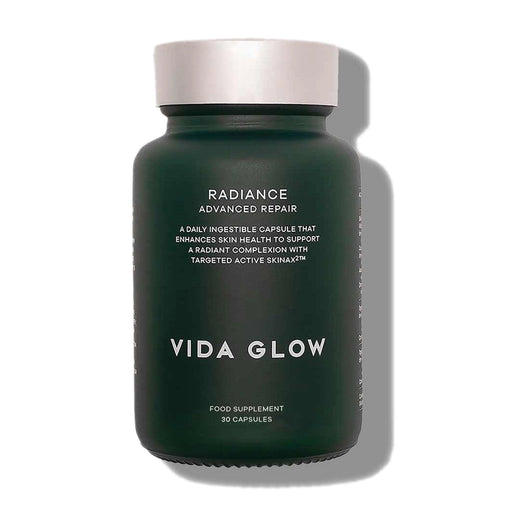Mon-Fri: 9am - 5pm
Excluding Bank Holidays
Mon - Fri: 9:00 - 17:00PM
Excluding Bank Holidays
 Free UK Delivery
On all orders over £60
Free UK Delivery
On all orders over £60
 Worldwide Shipping
With Reduced International Shipping Charges
Worldwide Shipping
With Reduced International Shipping Charges
 15% Off Your First Order
Code: FIRST15
15% Off Your First Order
Code: FIRST15
 Save 0%
Save %
Save 0%
Save %
Experience relief from anxiety and stress with Vida Glow Women's Health De-Stress. These cranberry-flavoured chewable burstlets are packed with cli...
View full details Save 0%
Save %
Save 0%
Save %
Brighten, improve, and illuminate with Vida Glow Radiance capsules. This daily ingestible capsule enhances skin tone by reducing dark spots and dis...
View full details Save 0%
Save %
Save 0%
Save %
Revitalize your skin with Vida Glow Collagen Liquid Advance. This portable beauty essential delivers a double dose of Natural Marine Collagen and a...
View full details
Vitamins are essential organic compounds that our body needs in small quantities to perform various functions and maintain optimal health. They are crucial for normal growth, development, and metabolism. Vitamins cannot be produced by the body in sufficient amounts, so they must be obtained through our diet or supplements. There are 13 essential vitamins, each with its own unique role in supporting different bodily functions.
Vitamins are classified into two categories: fat-soluble vitamins (A, D, E, and K) and water-soluble vitamins (B vitamins and vitamin C). Fat-soluble vitamins are stored in the body's fat tissues and can be stored for longer periods. On the other hand, water-soluble vitamins are not stored and are excreted through urine, so they need to be replenished regularly.
The vitamins you should take depend on your individual needs, age, gender, and overall health. It is always recommended to obtain vitamins from a balanced diet consisting of fruits, vegetables, whole grains, lean proteins, and healthy fats. However, certain groups of people may require additional vitamin supplementation.
For example, pregnant women are often advised to take prenatal vitamins that contain higher amounts of folic acid and iron to support fetal development. Older adults may benefit from vitamin D and calcium supplements to maintain bone health. Vegetarians and vegans might need to supplement their diets with vitamin B12, as it is mainly found in animal products.
It's important to consult with a healthcare professional or a registered dietitian to determine your specific vitamin needs and whether supplementation is necessary for you.
While vitamins are essential for our health, it is possible to overdose on certain vitamins if taken in excessive amounts. Fat-soluble vitamins, such as vitamin A and vitamin D, can accumulate in the body and reach toxic levels if consumed in large quantities.
Water-soluble vitamins, such as vitamin C and B vitamins, are generally considered safe because any excess amounts are excreted through urine. However, extremely high doses of certain water-soluble vitamins can still cause adverse effects.
To avoid vitamin overdose, it is important to follow the recommended daily intake guidelines provided by health authorities. Taking mega-doses of vitamins without medical supervision is not recommended and can have harmful effects on your health.

